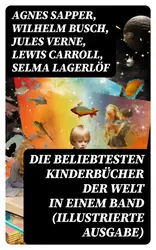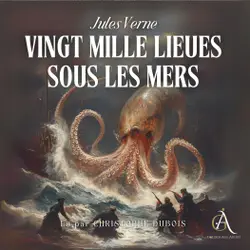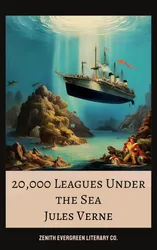In der Anthologie '40+ Abenteuerromane für den Lese-Urlaub' finden sich Werke einiger der bekanntesten Autoren des Abenteuer- und Entdeckungsliteraturgenres aus dem 18. und 19. Jahrhundert. Diese Sammlung vereint eine beeindruckende Vielfalt an literarischen Stilen und narrativen Strukturen, die von den gefahrvollen Seereisen eines Conrad und Verne bis zu den exotischen Landexpeditionen eines Kipling und Salgari reichen. Die Werke dieser Sammlung bieten nicht nur spannende Unterhaltung, sondern auch tiefe Einblicke in die kulturellen und sozialen Verhältnisse der jeweiligen Epochen, in denen sie geschrieben wurden, und reflektieren so die sich wandelnden Grenzen menschlichen Mutes und Entdeckergeistes. Die Autoren dieser Anthologie, darunter literarische Größen wie Charles Dickens, Herman Melville und Alexandre Dumas, zeichnen sich durch ihre Fähigkeit aus, das Abenteuer-Genre sowohl zu definieren als auch stetig weiterzuentwickeln. Jede Geschichte bietet eine eigene Perspektive auf heroische Expeditionen und gefährliche Begegnungen, wodurch die Sammlung zu einem umfassenden Panorama der Abenteuerliteratur wird. Ihre Werke spiegeln nicht nur individuelle erzählerische Brillanz wider, sondern stehen auch im Zusammenhang mit bedeutenden literarischen und kulturellen Strömungen ihrer Zeit, wie beispielsweise der Romantik und dem Realismus, wodurch sie kollektiv eine tiefere Auseinandersetzung mit den Themen Entdeckung und das Überwinden von Grenzen ermöglichen. Diese Anthologie ist ein Muss für jeden Literaturbegeisterten, der die Weite und Tiefe des Abenteuergenres in einem Band erforschen möchte. '40+ Abenteuerromane für den Lese-Urlaub' bietet nicht nur eine Reise durch gefährliche und unbekannte Welten, sondern auch eine literarische Entdeckungsreise, die den Leser animiert, die vielschichtigen Erzählungen und die historischen Kontexte, in denen sie entstanden sind, zu erkunden und zu verstehen. Diese Sammlung regt zum Denken an und fördert den Dialog zwischen den verschiedenen epischen Abenteuern, die sie enthält.

20.000 Meilen unter dem Meer - Hörbuch
Jules Verne
audiobook
The Mysterious Island
Jules Verne
audiobookbook
Die beliebtesten Kinderbücher der Welt in einem Band (Illustrierte Ausgabe) : Die Abenteuer Tom Sawyers, Heidi, Nesthäkchen, Peterchens Mondfahrt, Alice im Wunderland…
Agnes Sapper, Wilhelm Busch, Jules Verne, Lewis Carroll, Selma Lagerlöf, Johanna Spyri, Charles Dickens, Heinrich Hoffmann, Mark Twain, Gerdt von Bassewitz, Harriet Beecher Stowe, Robert Louis Stevenson, Julius Wolff, Frances Hodgson Burnett, Rudyard Kipling, Gottfried August Bürger, Carlo Collodi, Hans Christian Andersen, Else Ury, Hermann Bote, Brüder Grimm, Lothar Meggendorfer, E.T.A Hoffman, Elsbeth Montzheimer
book
The Purchase of the North Pole
Jules Verne
book
Around the World in Eighty Days : Jules Verne's Timeless Adventure of Speed, Strategy, and Global Wonders
Jules Verne, Zenith Horizon Publishing
book
Vingt mille lieues sous les mers - Livre Audio
Jules Verne, Livres audio en français
audiobook
Ein Abenteuer in Mexiko
Jules Verne
audiobook
Around the World in Eighty Days : A Timeless Adventure Novel by Jules Verne
Jules Verne, Zenith Golden Quill
book
20,000 Leagues under the Sea : A Deep-Sea Sci-Fi Adventure with Captain Nemo and the Nautilus
Jules Verne, Zenith Evergreen Literary Co
book
Die Meuterer von der Bounty
Jules Verne
audiobookbook
Michel Strogoff - Livre Audio
Jules Verne, Livres audio en français
audiobook
Journey to the Center of the Earth - Audiobook
Jules Verne, Classic Audiobooks
audiobook
